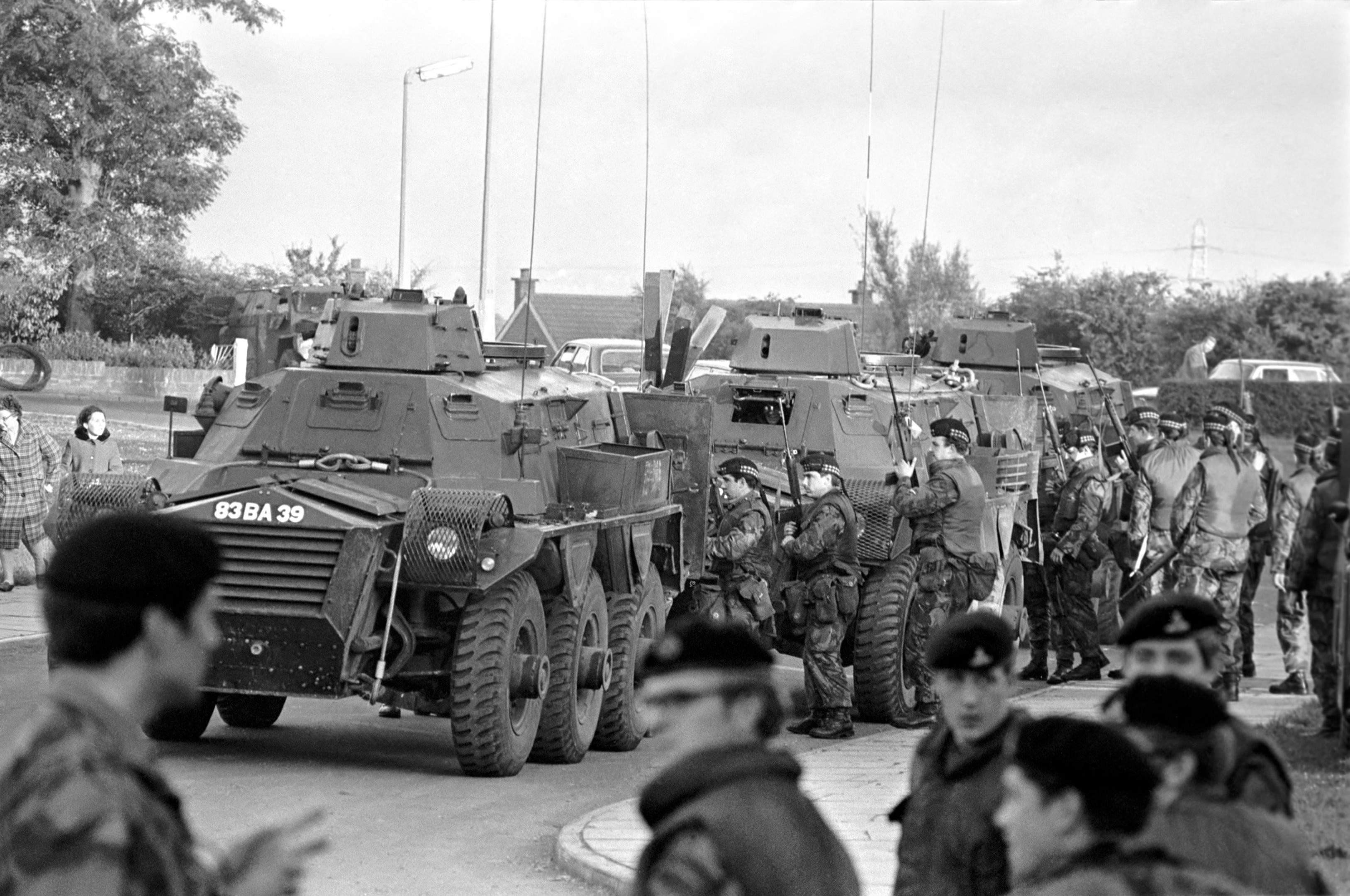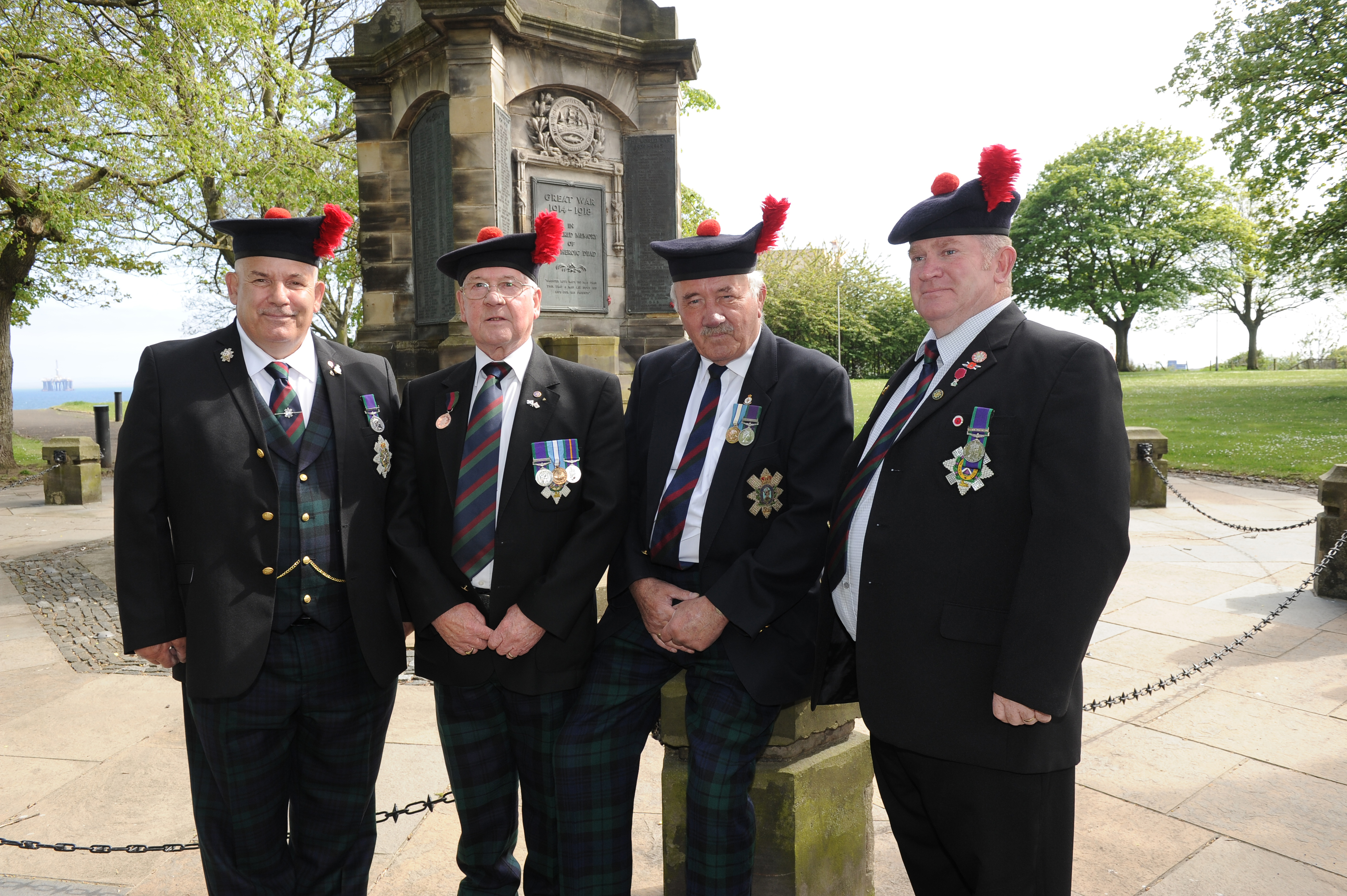
THEY are a band of brothers who believed their wars were over.
But four decades after serving in Northern Ireland, five Black Watch veterans, all from the regiment’s Fife heartland, are fighting another battle – to protect their reputations.
They fear investigations into deaths during the Troubles will tarnish the name of every soldier who served there.
The historical inquiries are re-investigating 3,200 deaths recorded during the conflict, including those linked to the military.
British troops have been pursued by law firms looking into allegations of misconduct in Northern Ireland, Iraq and Afghanistan.
Among veterans facing prosecution are two former British paratroopers, who face trial for the murder of IRA gunman Joe McCann in 1972.
And a former soldier in the Lifeguards regiment, Dennis Hutchings, faces trial for attempted murder following a fatal shooting in Northern Ireland in 1974.
Former service personnel have already been questioned and so far at least one unnamed Scottish ex-soldier has been told he could face prosecution in connection with the shooting in 1975 of Patrick Quail, 37, whose death was initially blamed on loyalists.
While terrorists convicted of violence were freed under the Good Friday Agreement and are now immune from prosecution, the campaigning soldiers believe every veteran is now being “betrayed”.
The men are launching a public petition and plan a campaign of protests, supported by politicians and former comrades.
One of them, Private Eddie Pratt, 55, from Methilhill, Fife, who served tours in Belfast from 1980 to 1984, said: “Why must we live under a cloud of suspicion, waiting for a knock on the door, because we put our lives at risk?
“I wear with pride my Northern Ireland medal but I’ll tell them to shove it if they question my behaviour.”
The Black Watch played a significant role as the British military attempt to quash the IRA.
Their campaign is supported by defence expert Lieutenant Colonel Stuart Crawford, who said: “We’ve let so-called political prisoners go free for the purposes of political expediency.
“On the other hand, the law is prepared to pursue those who were put in harm’s way to do their duty.
“It is a direct contradiction of morality. It feels like a witch hunt.”
MSP Maurice Corry, Scottish Conservative armed forces spokesman, agreed, criticising the manner in which veterans are being treated.
He said: “I’m appalled. Many involved in conflicts live with stress and trauma. I will do everything to ensure these threats are lifted.”
MP Carol Monaghan, the SNP’s armed forces spokeswoman, claimed veterans who “served with honour in the most difficult, stressful and dangerous circumstances, have nothing to fear from the investigations into the wrongdoings of a few rogue operators”.
She said: “The Good Friday Agreement brought about a reconciliation.
“An important part of this was that the perpetrators admitted to atrocities committed. This included a small minority serving in the armed forces.”
But Lt Col Crawford said: “The ex-servicemen are easy targets, many are old and infirm.
“I don’t understand who is driving this agenda but I wonder how they would feel is it was the released ‘political prisoners’ who were being brought back for investigation.”
PRIVATE NORMAN EDNIE, 55
Three tours. 1982 until 1989.
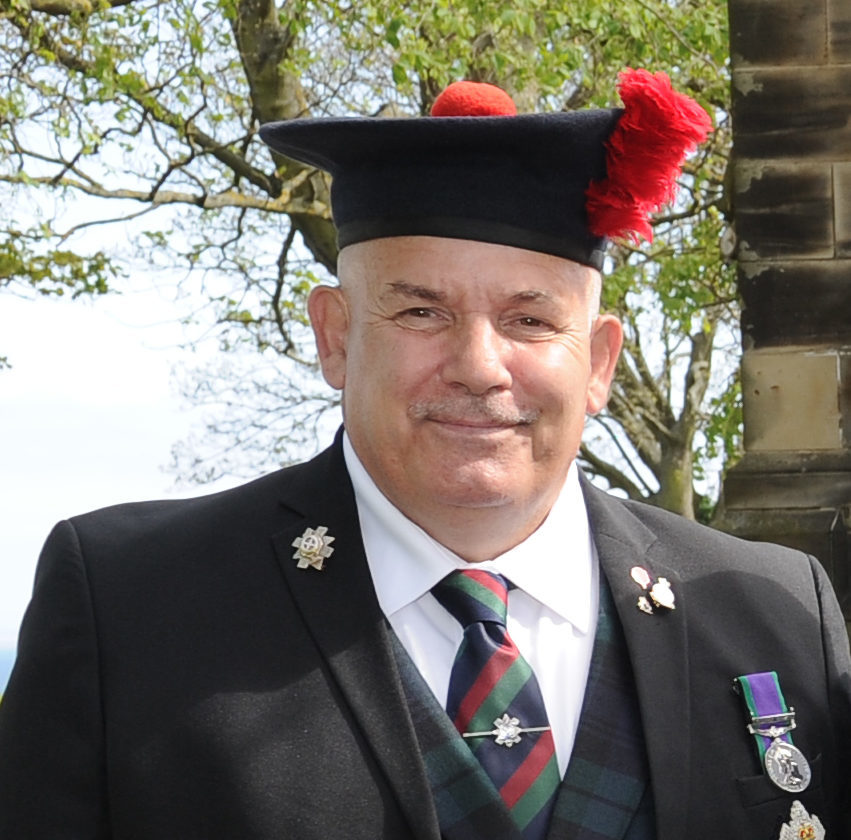
“My daughter was born on the day after I left for my first tour and I didn’t see her for six months. That was my first sacrifice. There would be many, many more. Sleep deprivation, stress, wondering if you would take the next bullet or if the car next to you would blow up. You could trust no-one but your comrades. We lived every day believing that it could be our last. Now, 40 years later, all of our names are being blackened by lawyers and politicians. It is as if what we gave of ourselves had no meaning, that the sacrifices we made, especially those of us who made the ultimate sacrifice, counted for nothing.”
PRIVATE EDDIE PRATT, 55
Belfast: 1980 to 1984.
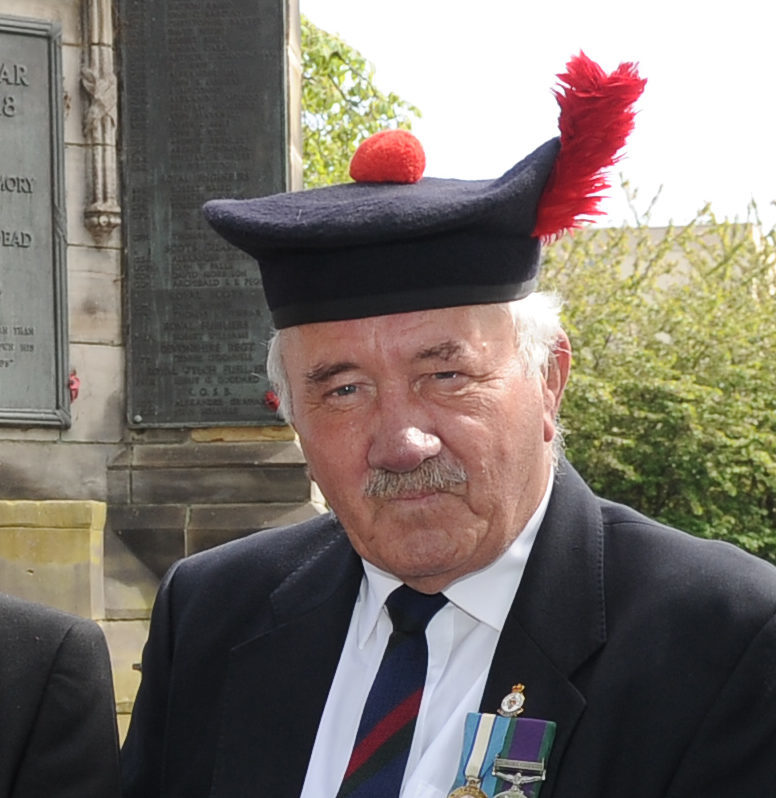
“Where is the justice? Where are those who launched the rocket attack on me and my comrades which maimed one of them for life? They are free. Where are the killers released by the Good Friday agreement? Free! However, we could be accused of “crimes”. We did our jobs and I wear my Northern Ireland medal with pride. But if anyone questions my service I’ll tell them to stick it. I know some believe handing it back would be to give in but I would do it. These accusers cannot appreciate what we faced and through it all we acted with honour.”
PRIVATE GEORGE SEATH, 75
Five tours from 1972: Belfast, Londonderry, Armagh.
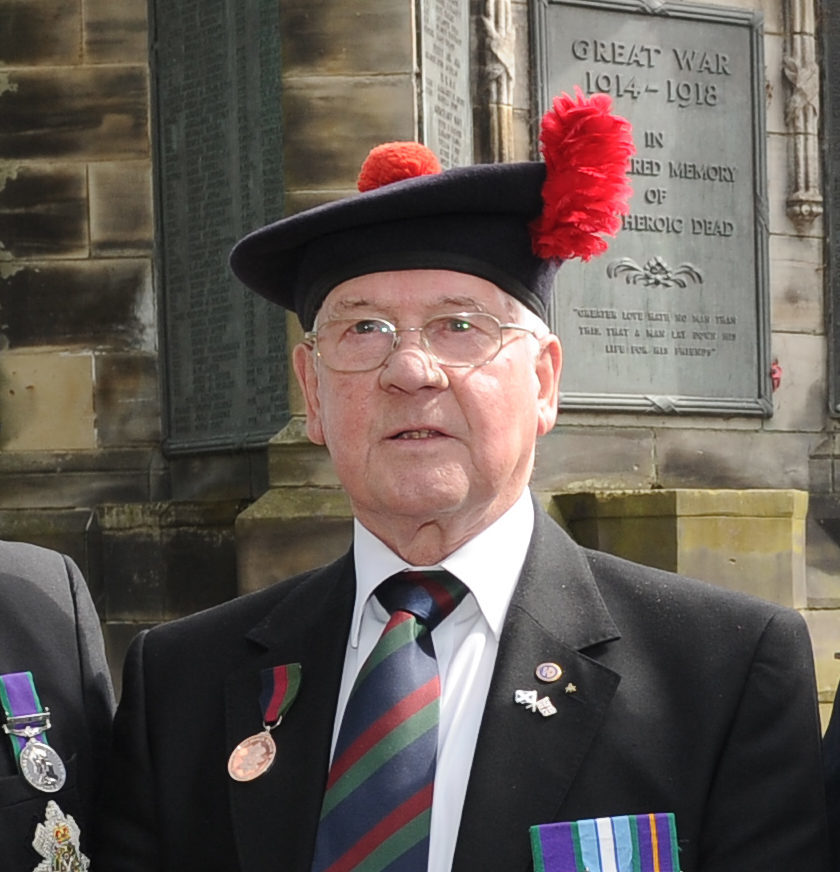
“The horrifying thought is that some soldiers who did their job, could face accusations and possible prosecution while murderers who took the lives of innocent civilians and my comrades are walking free. That is not justice, or anything like it. We are ashamed of nothing and for anyone to point the finger at us is a travesty. I see the Army is struggling to recruit. Why would any young person enlist and possibly face this kind of persecution – and prosecution – years after their service.”
WARRANT OFFICER 2 IAN MacDONALD, 74,
Went to Belfast in 1969, the first of 13 tours.
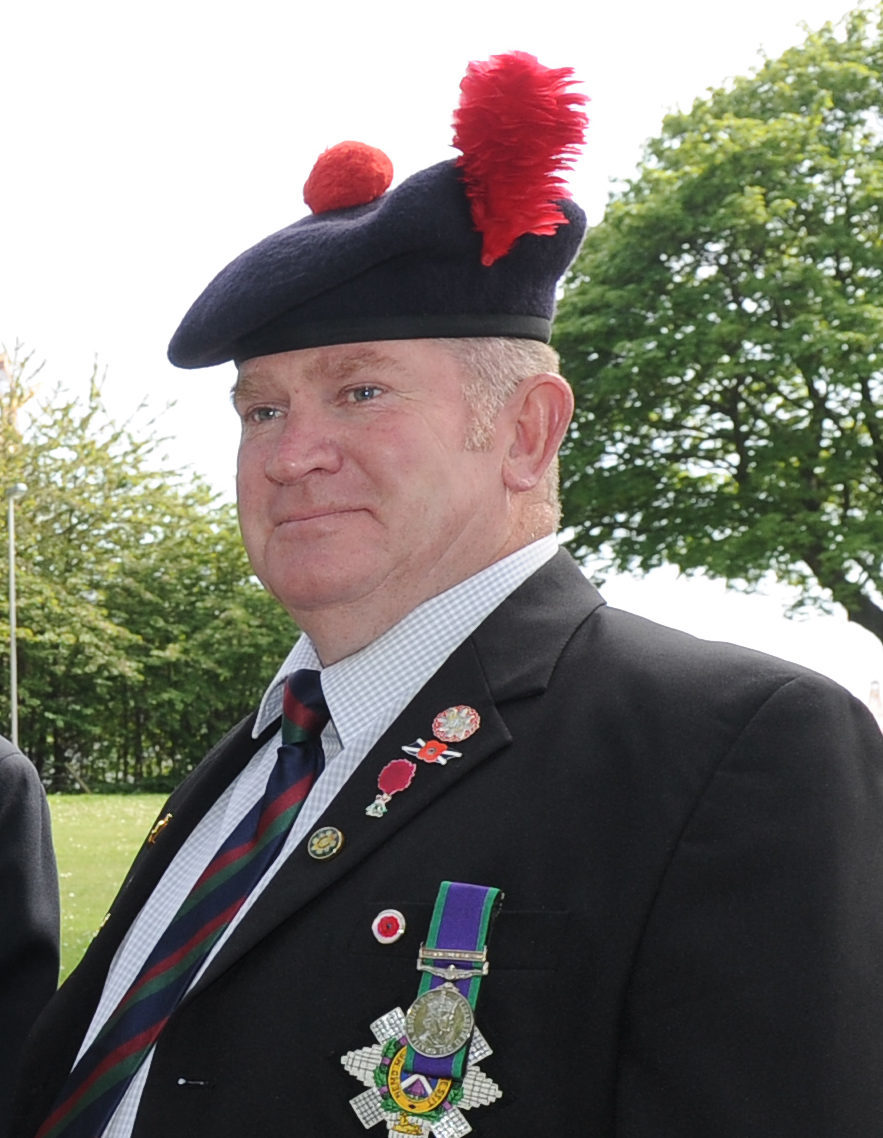
“With hand on my heart, I never witnessed a single improper act. The regimental ethos was everything. We lived on our honour. But now some are questioning the honour of the best trained soldiers in the world. Our loyalty, professionalism and the memory of soldiers who did not come back is being sacrificed on the altar of politics. We lost good men to the IRA. This is a betrayal which may never end. Will the few remaining veterans of the Second World War be condemned? Those who fought in Afghanistan and Iraq? Those who will serve in future conflicts? We who served with honour and distinction must challenge those who seek to blacken our name.”
Campaigners: Most bereaved families who lost loved ones do not want revenge. They seek truth and justice
Representatives of those killed during the Troubles say the inquiry is an opportunity for justice for all sides involved.
Anti-sectarian human rights campaigners at the Pat Finucane Centre pointed out that anyone who failed to uphold the law – not only members of the Armed Forces – will be investigated.
The organisation argued any exemption for veterans would be “illegal, immoral and certain to contradict both the spirit and the letter of the peace process.”
A spokesman said: “Where they didn’t uphold the law they should be subject to investigation and prosecution, as with anyone else.
“It was the actions of some soldiers, who killed unarmed civilians not posing any threat to them or others that inflamed and aggravated the conflict in the early ’70s.”
He added: “The vast majority of bereaved families whose loved ones were shot dead by soldiers do not want revenge. They seek truth and justice.”
Solicitor Pádraig Ó’Muirigh, who represents the family of 11-year-old plastic bullet victim Stephen McConomy, said some of his clients and others who lost people close to them want closure.
“They want everyone investigated fairly, whether they had a uniform on, whether they were a Loyalist or a Republican,” he added.
A spokesman for the Police Service of Northern Ireland said: “Between January 1, 1969 and April 10, 1998 there were 3,200 homicides in Northern Ireland and 1186 of these deaths feature on the PSNI’s Legacy Investigation Branch Case Sequencing Model.
“Almost one third are to be reviewed by PSNI’s Legacy Investigation Branch.
“Of those cases which remain to review, 45.5% of the deaths are attributed to republican paramilitaries, 23% to loyalist paramilitaries, 28.5% to the security forces. For the remaining 3%, the background of those primarily responsible is unknown.”

Enjoy the convenience of having The Sunday Post delivered as a digital ePaper straight to your smartphone, tablet or computer.
Subscribe for only £5.49 a month and enjoy all the benefits of the printed paper as a digital replica.
Subscribe